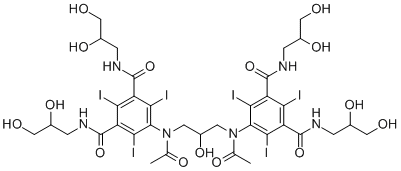Hypomethylation of oncogene promoters and hypermethylation of tumor suppressor gene promoters are pivotal alterations in cancer development. The CpG island methylator phenotype is a methylation status when a large number of gene loci are simultaneously hypermethylated, probably as consequence of mutations of methyltransferases or histone-modifying proteins, aging, virus exposure, chronic inflammation or other underlying factors. Reportedly, CIMP was observed in many tumors, including colorectal cancer, adrenocortical carcinomas, gastric tumors, liver cancer, esophagus cancer, ovarian cancers and acute myelogenous leukemia. In different tumors, CIMP of the whole tumor Anemarsaponin-BIII genome affects different specific genes and functions differently, either as favorable or unfavorable predictors for patients. Poorer outcome was observed in Ursolic-acid patients who suffered adrenocortical carcinomas with the existence of CIMP. Nevertheless, according to previous research, in gastric carcinoma, the prognosis of the patients without CIMP was significantly worse compared with that of patients with CIMP. Such evidence confirms  the fact that hypermethylation of the whole cancer genome does not necessarily mean better or worse outcomes for patients. Instead, it is the specific genes that are aberrantly methylated that determine outcomes. G-CIMP is enriched in a subgroup of glioma, the proneural subgroup, according to the TCGA classification scheme for glioma. In G-CIMP-positive samples, a large number of CpG island loci located in specific gene promoters are hypermethylated and patients usually have better outcomes. According to our research and data analysis, hypermethylation of the SOCS3 promoter is highly associated with G-CIMP-positive samples and predicts improved outcomes for patients, but is not a predictor for G-CIMP-negative patients. Therefore, we conclude that SOCS3 hypermethylation status has favorable prognostic value in GBM patients because of its whole genome methylation status. SOCS3 functions as a tumor suppressor in many cancers including GBM. According to the bio-effects of the genetic hypermethylation process, hypermethylation of tumor suppressor gene promoters theoretically is aversive for tumorigenesis or progression. Furthermore, many studies have confirmed the effect of SOCS3 in GBM samples. In G-CIMP-positive samples, as our data showed above, the SOCS3 promoter is hypermethylated along with a variety of other loci. The hypermethylation of the SOCS3 promoter is just a part of the whole genome methylation status and its negative effect on tumorigenesis or progression may be neutralized by the comprehensive genome hypermethylation. This hypothesis may explain why hypermethylation of the SOCS3 promoter predicts favorable prognosis in GBM patients. In addition, other potential signaling pathways may be uncovered for which hypermethylation of the SOCS3 promoter serves as a better prognosticator. Because this single gene alteration accompanies whole genome hypermethylation, SOCS3 can be regarded as a pivotal gene that functions as a predictor for the whole genome methylation status. As we revealed in this research, SOCS3 hypermethylation is a de novo indicator for G-CIMP and predicts better patients’ outcomes.
the fact that hypermethylation of the whole cancer genome does not necessarily mean better or worse outcomes for patients. Instead, it is the specific genes that are aberrantly methylated that determine outcomes. G-CIMP is enriched in a subgroup of glioma, the proneural subgroup, according to the TCGA classification scheme for glioma. In G-CIMP-positive samples, a large number of CpG island loci located in specific gene promoters are hypermethylated and patients usually have better outcomes. According to our research and data analysis, hypermethylation of the SOCS3 promoter is highly associated with G-CIMP-positive samples and predicts improved outcomes for patients, but is not a predictor for G-CIMP-negative patients. Therefore, we conclude that SOCS3 hypermethylation status has favorable prognostic value in GBM patients because of its whole genome methylation status. SOCS3 functions as a tumor suppressor in many cancers including GBM. According to the bio-effects of the genetic hypermethylation process, hypermethylation of tumor suppressor gene promoters theoretically is aversive for tumorigenesis or progression. Furthermore, many studies have confirmed the effect of SOCS3 in GBM samples. In G-CIMP-positive samples, as our data showed above, the SOCS3 promoter is hypermethylated along with a variety of other loci. The hypermethylation of the SOCS3 promoter is just a part of the whole genome methylation status and its negative effect on tumorigenesis or progression may be neutralized by the comprehensive genome hypermethylation. This hypothesis may explain why hypermethylation of the SOCS3 promoter predicts favorable prognosis in GBM patients. In addition, other potential signaling pathways may be uncovered for which hypermethylation of the SOCS3 promoter serves as a better prognosticator. Because this single gene alteration accompanies whole genome hypermethylation, SOCS3 can be regarded as a pivotal gene that functions as a predictor for the whole genome methylation status. As we revealed in this research, SOCS3 hypermethylation is a de novo indicator for G-CIMP and predicts better patients’ outcomes.